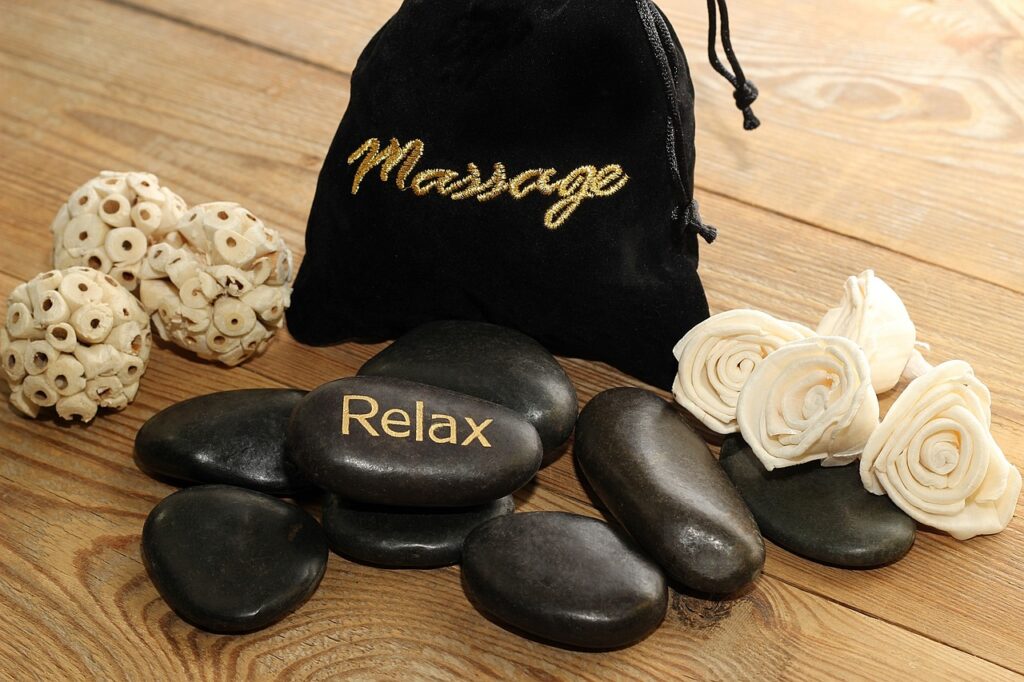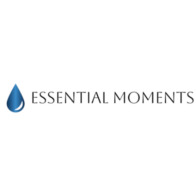Top 8 Benefits of Sauna: Boost your Health & Wellness

Are you wondering what a sauna can do for your health? Passive heat therapy offers numerous benefits, from boosting your immune system to reducing the risk of vascular diseases such as high blood pressure and neurocognitive diseases. This article will explore 8 Benefits of sauna use and how the wellness tool can extend your health span. Passive heat therapy encompasses a diverse range of thermal wellness modalities, including the following: Hot tubs Waon Therapy Hydrotherapy Infrared Saunas Finnish Saunas Steam Baths Among these, Finnish saunas stand out as the most extensively researched. They are distinguished by their extreme temperatures spanning 80–100°C and remarkably low humidity levels between 10–20%. Frequent sauna sessions offer a holistic approach with remarkable benefits, enhancing peak physical performance and supporting a longer, more functional lifespan. Top Sauna Benefits 1. Enhanced Cardiovascular Health Regular sauna sessions have a notable impact on improving cardiovascular health. They increase your heart rate and elevate your core temperature, similar to what happens during moderate exercise. This exposure to heat enhances autonomic nervous system responses that are critical for sustaining a robust cardiovascular system, effectively providing a low-intensity cardiovascular workout. Engaging in frequent sauna bathing has been associated with reduced risks of mortality due to cardiovascular issues. 2. Improved Blood Pressure Regulation Are you aware that sauna activities can help manage your blood pressure? While initial heat exposure during a sauna session may cause an uptick in blood pressure, consistent use over time has been shown to contribute to lower overall levels. This beneficial effect arises from saunas’ enhancement of blood flow, which ensures more oxygen and nutrients reach your blood vessels and skin cells. A 2023 study among men found that frequent sauna bathing (3–7 times per week) may help reduce the increased risk of all-cause mortality linked to high systolic blood pressure. Thus, regular sauna use could be a valuable addition to your routine for supporting heart health and longevity. 3. Stress Relief and Mental Well-Being In our fast-moving society, it’s essential to discover effective stress management methods for mental health. Sauna bathing may serve as a practical intervention if you have a high-stress profession, helping you to alleviate conditions such as: Chronic inflammation Oxidative stress Cardiometabolic disease Research shows that individuals primarily use sauna bathing for relaxation, stress reduction, and pain relief, with many reporting improvements in mental well-being and sleep quality. The findings suggest that regular sauna use is generally safe, with few adverse effects, and supports its potential as a therapeutic tool—though further research and wider awareness are needed to fully explore and utilize its health benefits. 4. Immune System Boost Engaging in regular sauna bathing improves the immune system’s capacity to combat infections by bolstering the production of white blood cells, which play a vital role in defending against illnesses. Sauna use stimulates the release of heat shock proteins that repair cells and fortify the body’s immune response. Research has shown that routinely using saunas can help the body adapt to repeated heat sessions, improving heat tolerance and potentially lowering mortality rates. This adaptation also reduces the risks of brain disorders like dementia and Alzheimer’s disease. The greatest health benefits, particularly in cardiovascular health and mortality reduction, are likely achieved when physical fitness is combined with sauna bathing, illustrating how various lifestyle habits can significantly impact your overall health. 5. Skin Health Enhancement The benefits of sauna use go beyond bolstering your heart and immune system. They are also remarkable for your skin. Engaging in sauna sessions induces profound sweating, which aids in the elimination of impurities and dead skin cells, thereby enhancing skin health. Regular sauna use can mitigate acne issues by minimizing pore blockages and detoxifying the complexion. Exposure to sauna heat encourages collagen synthesis, which is crucial for preserving the firmness and suppleness of the skin and resisting aging indicators. Consistently partaking in sauna experiences leads to clearer, more vibrant-looking complexions that exude a youthful appearance. 6. Respiratory Benefits The process of using saunas offers the remarkable advantage of facilitating easier breathing. A steam room’s warm and moist environment helps hydrate and dilate your lungs, enhancing air circulation and overall lung capacity. Studies have shown that sauna therapy offers significant benefits for lung health by supporting the respiratory system and helping to clear mucus from the airways. Regular sauna sessions may help improve lung capacity, ease breathing, and support overall pulmonary function, making them valuable complementary practices if you’re managing respiratory conditions or simply looking to strengthen your lung health naturally. 7. Better Sleep Patterns If you struggle with sleep, saunas might be the solution you’ve been looking for. Regular sauna use is linked to improved sleep quality, with 83.5% of respondents in a study reporting better sleep after using a sauna. The time spent in a sauna before sleep allows your body to cool down afterward, which is beneficial for improving sleep patterns. Additionally, sauna sessions are associated with increased deep and REM sleep, contributing to overall sleep health. Higher heart rate variability among sauna users also indicates better recovery and sleep quality. Regular sauna sessions can make a significant difference in enhancing sleep. 8. Excretion of Heavy Metals Via Sweat Another noteworthy advantage of engaging in sauna sessions is the detoxification from heavy metals. Sauna use supports the removal of toxins such as arsenic and mercury, as well as lead, by stimulating sweat production, which plays a crucial role in expelling these substances from your body. Sweating within a sauna boosts blood flow and stimulates the lymphatic system, both essential components for successful detoxification. Incorporating a regular sauna into your routine can facilitate the liberation of heavy metals lodged within fat cells, streamlining the detox process. Special consideration should be given when aiming to enhance the mobilization of heavy metals and chemical xenobiotics. In such cases, longer sessions are required and should be medically monitored. To optimize the benefits of this detoxifying activity, ensure you stay
How Spa Therapy Enhances Health & Mental Wellness

Spa therapy delivers evidence-based physical and mental health benefits through specialized therapies that restore balance and enhance overall well-being. This article examines spa-based healing modalities, benefits, massage varieties, and practical considerations. Understanding Spa Therapy The term Spa is derived from the town of Spa, Belgium, whose name in Roman times was Aqua Spadanae. Today’s wellness landscape features diverse spa varieties—from convenient day retreats to immersive destination sanctuaries and therapeutic health centers, each catering to distinct well-being journeys. These oases offer specialized treatments, from the ancient practice of hydrotherapy to various massage modalities, all meticulously crafted to induce deep relaxation and facilitate your body’s natural restoration processes. Central to spa therapy are havens that nurture an individual’s sense of being looked after, which can significantly bolster resilience against stress. To enhance their restorative effects, many spa treatments integrate natural components like mineral-rich spring water into their practice for a comprehensive approach to maintaining good health. Integrative Spa & Wellness Therapies Spa therapy, often associated with health resorts and referred to as health resort medicine, combines various therapeutic practices as follows: How does Spa Therapy impact our health? In today’s healthcare practices, spa therapies have transcended their reputation as mere indulgences and are now recognized for their considerable therapeutic value. These treatments contribute to mental and physical wellness and are essential to comprehensive health management. Studies have shown that spa therapy can effectively enhance well-being in middle-aged adults with common health issues. Another study has shown significant improvement in quality of life, pain, and functional measures in chronic low back pain patients after spa therapy sessions. To improve your cardiovascular health, spa methods like hydrotherapy and body wraps can enhance your blood flow, helping your body heal injuries more effectively. Heat or steam treatments stimulate your lymphatic system, promoting your body’s natural detoxification process and helping you eliminate toxins more efficiently. Regular spa sessions can strengthen immune system response due partly to decreased stress levels, which otherwise compromise immunity. Scent therapy combined with massage maintains hormone equilibrium while promoting mood improvements. This synergy underscores the extensive wellness advantages linked with consistent spa therapy engagement. According to a 2021 study, spa therapy sessions demonstrate significant efficacy in ameliorating depression, anxiety, and stress-related sleep disturbances while concurrently providing therapeutic benefits for chronic pain and musculoskeletal conditions. What are the Most Popular Spa Treatments? 1. Swedish Massage This traditional full-body massage technique uses long, flowing strokes to promote relaxation and ease muscle tension. 2. Deep Tissue Massage It involves a highly trained therapist using strong finger pressure and slow friction to affect the sub-layer of muscle tissue as far down to the bone as possible. It relieves muscle aches and tension, helping you feel recharged and relaxed. 3. Hot Stone Massage This elegant relaxation solution offers a perfect symphony of temperature (heated basalt stones) and touch, addressing both physical discomfort and mental stress and leaving you in a state of blissful calm. 4. Aromatherapy Massage Combines pure essential oils with massage techniques to enhance your emotional well-being. 5. Thai Influenced by traditional medical systems in India, Southeast Asia, and China, Thai massage is a rigorous technique in which a therapist manipulates the body into stretches, applying rhythmic pressures and loosening the joints. It’s typically practiced on a firm mat on the floor, and no oils are used. 6. Shiatsu Massage This is an ancient Japanese finger-pressure technique based on traditional Chinese medicine. Practitioners believe that applying pressure to traditional acupuncture points can fix imbalances in the body’s energy flow, aid relaxation, and stimulate lymphatic flow. 7. Reiki Originating in Japan, Reiki is a spiritual therapy of energy healing. It involves a practitioner placing their hands above the body in positions relating to vital organs and nerve plexus. This serves as the Qi (life force) channel to activate healing energy within receptive points. 8. Lymphatic Drainage Massage This gentle technique encourages detoxification and boosts the immune system by stimulating the natural flow of lymph. By supplying oxygen to the tissues, this massage technique increases blood flow and eliminates metabolic waste. Benefits of Spa Therapy 1. Stress Reduction Reducing stress is a widely recognized advantage of engaging in spa treatments. Methods such as massages and the use of essential oils are particularly effective at diminishing stress levels and easing anxiety symptoms. Aromatherapy massage, for example, is especially adept at promoting relaxation while improving mental and physical health. A 2019 study found that combining Aromatherapy with Music Therapy positively reduces anxiety and stress. These various therapeutic approaches foster feelings of peace and help significantly reduce stress by encouraging the body to produce hormones associated with positive mood states. 2. Pain Relief Spa treatments, including Hydrotherapy and Hot Stone massages, are widely acclaimed for their capacity to alleviate pain. Hot stone massages, in particular, can significantly ease arthritis symptoms by promoting muscle relaxation and enhancing blood circulation. Similarly, a 2021 study examined the effects of hydrotherapy in patients with non-specific low back pain (NSLBP). Findings revealed that after 10 sessions, participants experienced significant improvement in NSLBP symptoms. Additional research also demonstrated hydrotherapy significantly improved pain, function, and muscle performance in older women with knee osteoarthritis. Findings on Spa therapy for fibromyalgia concluded that adding spa therapy to standard medical treatment provides benefits for women with fibromyalgia, including reduced pain, fewer tender points, and improved overall well-being. 3. Improved Sleep Spa therapy is known to greatly enhance sleep quality. The deep relaxation that these treatments offer aids the body in unwinding, which assists individuals, particularly those who suffer from sleep problems, in falling asleep more easily and maintaining their slumber throughout the night. This level of relaxation is instrumental in improving overall sleep quality, thus promoting general health and well-being. Studies have shown that hot spring balneotherapy significantly relieves mental stress, improves sleep quality, and alleviates general health issues in sub-healthy individuals. Additionally, it

